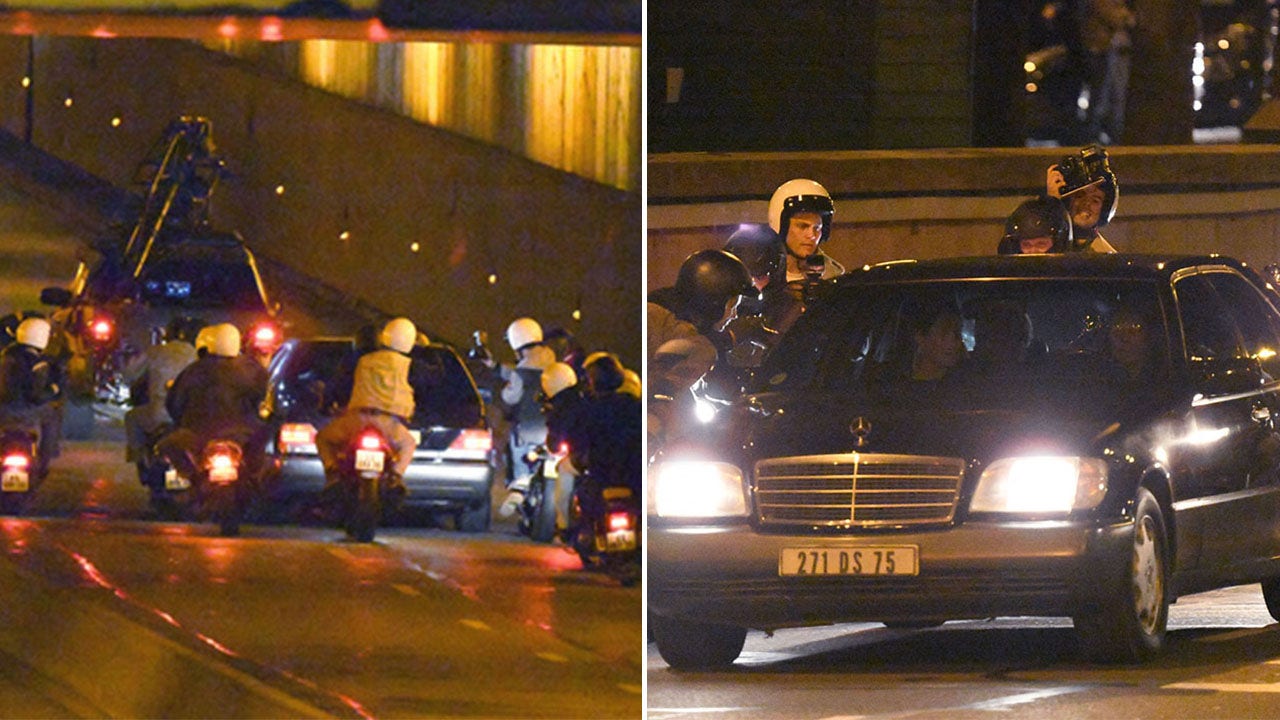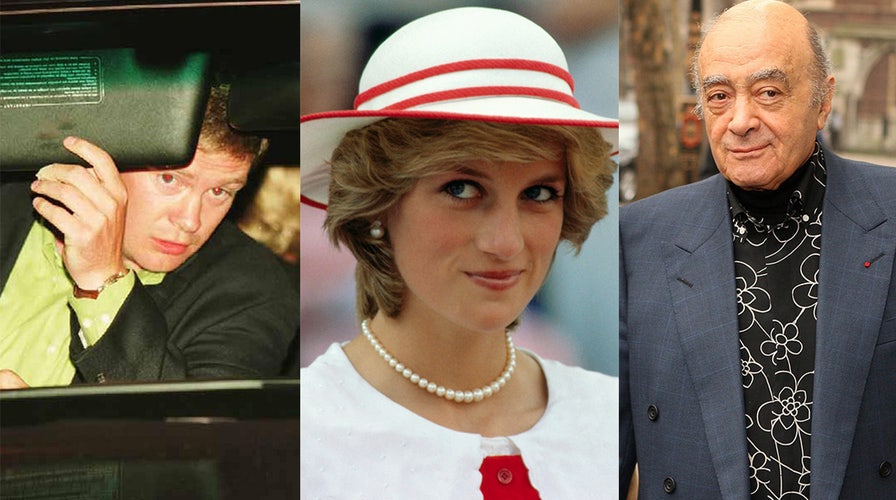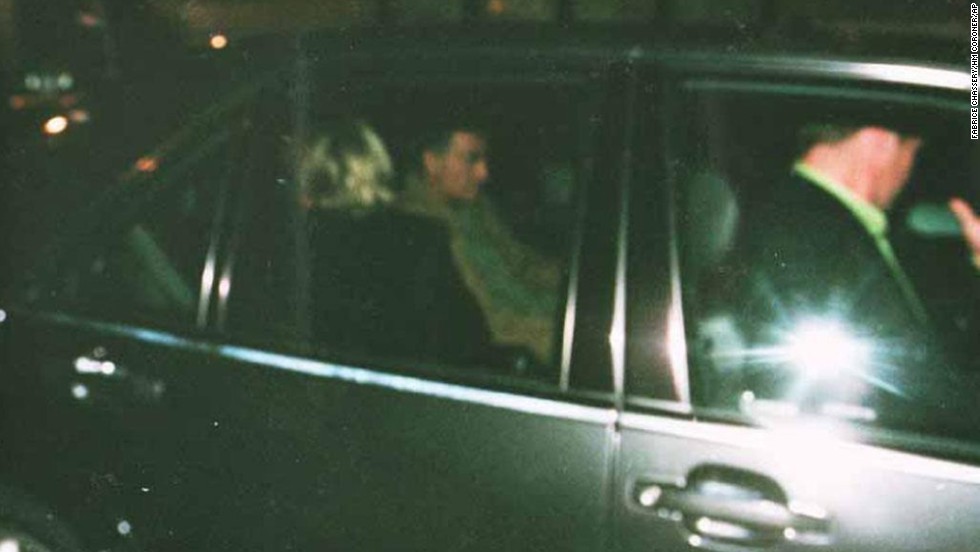Princess Diana Photo Crash: A Heartbreaking Tragedy That Shook The World
The tragic death of Princess Diana is an event that continues to resonate with people worldwide, decades after it occurred. Her untimely passing on August 31, 1997, in a car crash in Paris remains one of the most shocking moments in modern history. The circumstances surrounding the accident, particularly the relentless pursuit by paparazzi, have sparked widespread discussions about media ethics and privacy rights.
Princess Diana's life was nothing short of extraordinary. As a member of the British royal family, she became a global icon known for her humanitarian work and charismatic personality. However, the relentless media attention she faced throughout her life ultimately played a role in the tragic events that unfolded on that fateful night.
This article delves deep into the events surrounding the Princess Diana photo crash, exploring the causes, consequences, and the lessons learned from this tragic incident. By examining the details, we aim to honor her memory while fostering a better understanding of the dangers of media intrusion.
Read also:How To Create Viral Mms For Social Media Marketing The Ultimate Guide
Table of Contents
- Biography of Princess Diana
- The Night of the Crash
- Causes of the Accident
- Role of Paparazzi
- Official Investigation
- Conspiracy Theories
- Impact on the Royal Family
- Lessons Learned
- Legacy of Diana
- Conclusion
Biography of Princess Diana
Princess Diana, born Diana Spencer on July 1, 1961, was a beloved figure in the hearts of millions. Her life was marked by both triumphs and trials, making her one of the most iconic women in history.
Early Life and Family Background
Princess Diana was born into an aristocratic family in England. She grew up in Norfolk and was educated at private schools. Her parents' divorce when she was young left a lasting impact on her life. Diana went on to work as a nursery teacher before marrying Prince Charles in 1981.
Below is a summary of her personal details:
| Full Name | Diana Frances Spencer |
|---|---|
| Date of Birth | July 1, 1961 |
| Place of Birth | Sandringham, Norfolk, England |
| Spouse | Prince Charles |
| Children | Prince William and Prince Harry |
The Night of the Crash
The events leading up to the Princess Diana photo crash unfolded on August 31, 1997. Diana, her partner Dodi Fayed, and their driver Henri Paul were traveling through the Pont de l'Alma tunnel in Paris when their Mercedes-Benz collided with a pillar inside the tunnel. The crash occurred at high speed, resulting in severe injuries to all occupants.
Details of the Accident
- The car was traveling at an estimated speed of over 100 km/h (62 mph).
- Henri Paul, the driver, was found to have traces of alcohol in his system.
- Dodi Fayed and Henri Paul succumbed to their injuries, while Princess Diana passed away the following day in a Paris hospital.
Causes of the Accident
Several factors contributed to the tragic crash involving Princess Diana. Among these were the reckless driving, the driver's impaired state, and the relentless pursuit by paparazzi.
Driver's Condition
Henri Paul, the chauffeur, was later determined to have been under the influence of alcohol and suffered from sleep deprivation. These factors likely impaired his judgment and reaction time, contributing to the severity of the crash.
Read also:Understanding The Role Of A Gaming Control Board What You Need To Know
Role of Paparazzi
The involvement of paparazzi in the events leading up to the crash has been a focal point of debate. Photographers were reportedly pursuing the car at high speeds, creating a dangerous environment for all parties involved.
Media Responsibility
Experts argue that the media's insatiable appetite for celebrity news played a significant role in Diana's tragic death. The pressure to capture exclusive photographs often led to risky behavior by photographers, compromising the safety of public figures.
Official Investigation
An official inquiry into the crash was conducted by French authorities. The investigation revealed critical details about the accident, including the driver's intoxication and the high-speed pursuit by paparazzi.
Key Findings
- Henri Paul was found to have consumed alcohol prior to the crash.
- Photographers were present near the scene, though their direct involvement in the crash remains debated.
Conspiracy Theories
In the years following the crash, numerous conspiracy theories emerged, questioning the official narrative. Some theories suggested foul play, while others pointed to possible technical failures.
Examining the Evidence
While many theories lack credible evidence, they highlight the public's desire for answers and closure. It is essential to rely on verified information from credible sources when discussing such sensitive topics.
Impact on the Royal Family
The loss of Princess Diana had a profound impact on the British royal family. Her sons, Prince William and Prince Harry, were left to navigate their grief while facing intense media scrutiny.
Grieving Process
The royal family's handling of the grieving process drew both praise and criticism. Many admired their public displays of mourning, while others felt they should have been more private.
Lessons Learned
The Princess Diana photo crash serves as a stark reminder of the dangers of media intrusion and the importance of respecting personal boundaries. It has prompted discussions about the ethical responsibilities of journalists and photographers.
Media Ethics
Journalists and media organizations have since implemented stricter guidelines to prevent similar tragedies. Public figures continue to face challenges related to privacy, but awareness of these issues has improved over time.
Legacy of Diana
Princess Diana's legacy endures through her humanitarian efforts and the enduring admiration of the public. Her work in raising awareness about landmines, AIDS, and homelessness continues to inspire generations.
Charitable Contributions
Throughout her life, Diana dedicated herself to charitable causes, earning her the nickname "The People's Princess." Her compassion and dedication remain a beacon of hope for those in need.
Conclusion
The tragic Princess Diana photo crash remains a poignant reminder of the consequences of media intrusion and the importance of respecting personal boundaries. While her life was cut short, her legacy continues to inspire millions worldwide.
We encourage readers to reflect on the lessons learned from this tragedy and consider how they can contribute positively to discussions about media ethics and privacy rights. Share your thoughts in the comments below or explore other articles on our site for more insights into this and related topics.
References:
- BBC News: "Diana: Her Life and Death"
- Guardian: "The Investigation into Diana's Death"
- Forbes: "The Impact of Media on Celebrities"


